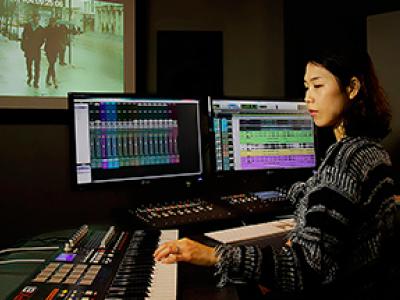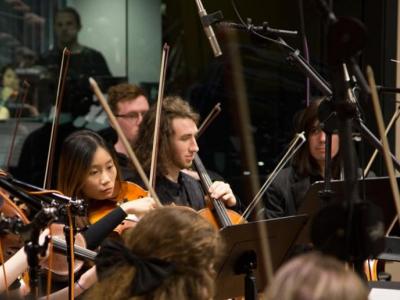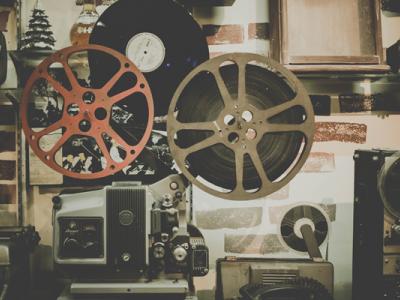What does an Orchestrator (Film and TV) do?
Although traditional music notation is still the primary language used by instrumental performers, film and TV composers have come to prefer the ease of MIDI notation. An orchestrator typically receives two things from a composer: a MIDI score and a synthesizer recording that demonstrates how it's meant to sound. Using these two resources—along with advanced listening, transcription, and problem-solving skills—the orchestrator must figure out exactly what the composer is going for musically, and how best to achieve this with the language of music notation. Like any translation, it's far from an exact science, especially when some sections may be too difficult for human players, or contain distorted and heavily modified sounds.
At a Glance
Most film orchestrators find their feet in the industry by working film or TV sessions as an orchestral musician or copyist, or by becoming an assistant to an established composer or orchestrator. Becoming well-known as an orchestrator affords the opportunity to expand one's orchestration studio and team. Some orchestrators might switch careers to become composers, conductors, music directors, or performing musicians.
Working as assistant to another film and television orchestrator or composer is the best possible way to develop the initial industry contacts, skills, and experience required to find work as an independent orchestrator.
- Orchestration
- Reading and writing music notation
- Notation software
- Music transcription
- Conducting
- Booth reading
- Deep knowledge of instruments
MIDI Orchestrators:
- MIDI
- Sample libraries
- Synthesizer programming
- Deep knowledge of instruments
Although the work of orchestration is often solitary in practice, the primary skill for any orchestrator is collaboration. Composers entrust orchestrators with their creative work, which also happens to be their professional product. A good orchestrator needs to know exactly what a composer is trying to accomplish with each note, and facilitate that in the final score—even if the two don’t exchange a single word. At the same time, orchestrators must consider the musicians who will end up playing the music, and what would make their jobs easier.
Most orchestrators work freelance out of a home office or private studio. Established orchestrators are likely to have their own teams who assist with the orchestration process. Even if all work up to that point has been remote—and it frequently is—all orchestrators are expected to travel to and participate in recording sessions.







